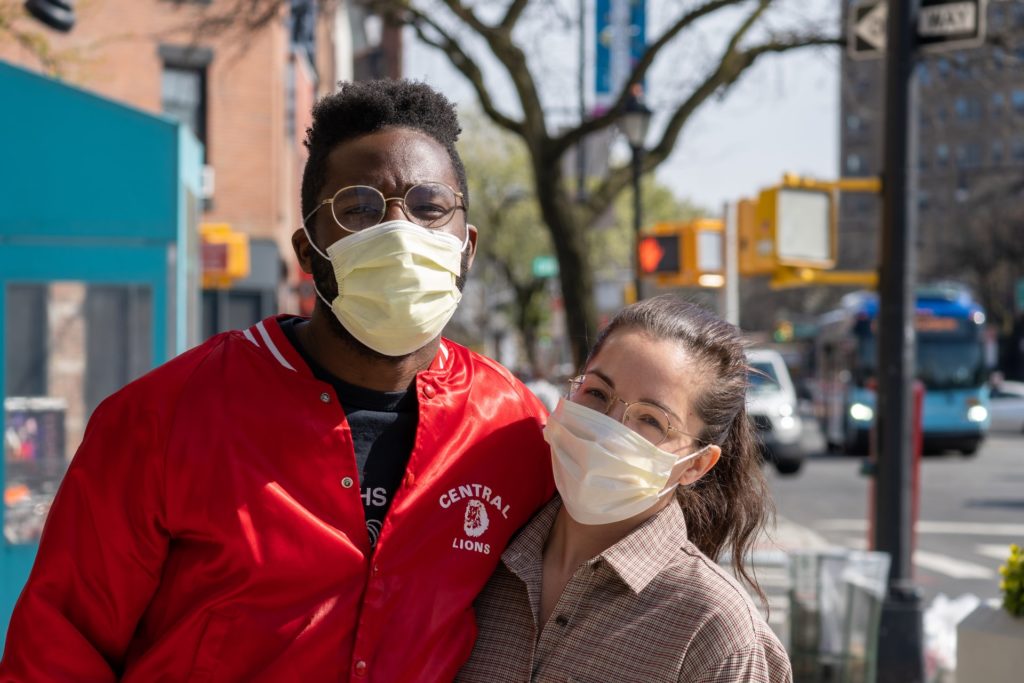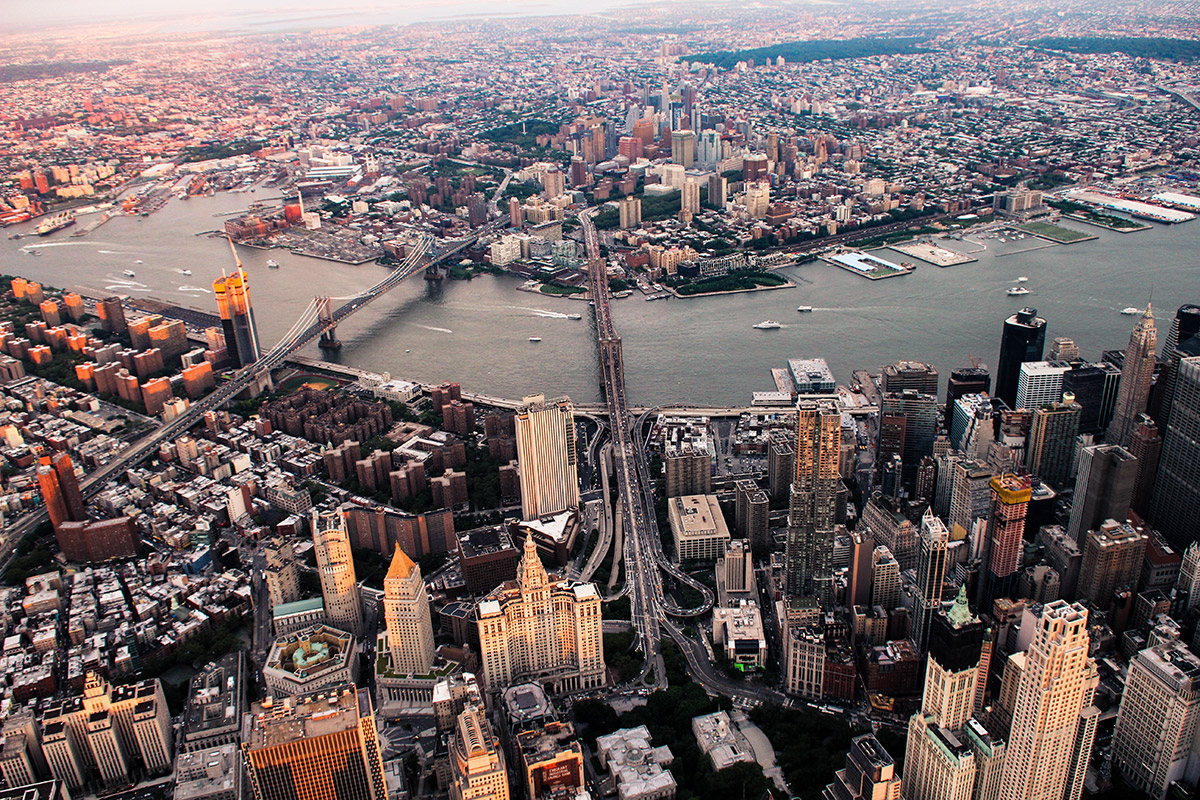These days, everyone seems to have an opinion on the future of cities. Recently, investor and author James Altucher declared that New York is dead forever. This article prompted native New Yorker and comedian Jerry Seinfeld to write his own rebuttal.
No matter how you feel about the future of cities like New York, San Francisco and others around the world, one thing is sure - our urban centers face multiple crises never before seen at this scale. Luckily, innovative smart city and mobility companies worldwide are working to solve some of the most pressing issues.
But before we get to that, let’s not forget that pre-pandemic, our cities were flying high.
The rise of cities.
For much of the last decade, the global population was flocking towards concrete jungles and glass towers at record rates.
In fact, a whopping 82% of Americans lived in urban areas as of 2019.
Here’s how annual growth shaped up from 2010-2019 for U.S. cities with populations greater than 1 million:
Overall, the growth rate exceeded 1% for every large U.S. city other than Los Angeles, Chicago, and Philadelphia.
New York City is an anomaly. It saw consecutive years of declining growth, culminating in a negative growth rate starting in 2016-17.
Only three cities - New York, Chicago, and San Jose ended the decade with negative growth years.
Globally, the numbers are even more impressive:
According to the United Nations Department of Economics and Social Affairs, in 2018, 55% percent of the world’s population lived in urban areas. That’s over 4 billion people.
This is projected to increase to 68% by 2050, with much of the growth across Asia and Africa.
A fall from grace.
COVID-19 has exacerbated many of our urban ills that have plagued cities for quite some time. Issues such as affordable housing and lack of common green spaces has long been top of mind for urban planners and city dwellers alike.
In the wake of the pandemic, here are some of the top issues cities are grappling with:
- Public transportation cuts: because of projected budget deficits due to low ridership, mass transit systems have no choice but to cut or modify service. In New York, the Metropolitan Transportation Authority is facing a $16.2 billion deficit through 2024. In LA, the Metro system is actually considering eliminating fees to encourage ridership towards those who truly rely on the infrastructure to commute to work.
- Lack of all-season outdoor space: to provide safe spaces to eat and congregate. Recently, the city of Chicago launched a competition for design agencies to put forth solutions to accommodate outdoor dining in the colder months.
- Lack of common green space, period. Cities spent the past century building infrastructure to support the automobile. Think parking garages and wider streets. Now, with outdoor space at a premium and more people adopting different forms of mobility, cities need to rethink this strategy.
- Insufficient affordable housing units. This is not a new problem, but with a growing income gap and underprivileged population (see #7), the deficit of quality housing will come to the forefront in a new light.
- Policing and tensions between populace and law enforcement. A hot-button issue that has turned political, but has real, practical implications for urban dwellers. Police departments will look to harness new technologies to maintain the peace as they reinvent themselves.
- Cultural institutions are gutted. Museums, galleries, opera houses, jazz clubs, and symphonies are the heart and soul of many cities. All of these institutions shut down at some point during the pandemic, and many remain closed. SFMOMA recently furloughed all full-time staff as revenue dropped by 90%. The future looks bleak. Even with re-openings, significant revenue comes via expensive seasonal subscriptions that might not be affordable as the recession drags on.
- A growing poor population. Those living under the poverty line did not go anywhere during the pandemic. In fact, the numbers are only growing as a result. One local food pantry in Queens, NY has seen its clientele increase 300% since March. At the same time, decreasing city agency budgets are forcing organizations to service a larger needy population with less funds. The math doesn't work.
- Lack of health screening at major points of entry. Our points of entry, including cruise terminals and airports, are vulnerable to further viral outbreaks. Thus far domestically, only San Francisco International Airport has onboarded rapid COVID testing for employees and airline staff. Internationally, airports in Frankfurt, Dubai, Hong Kong, and Tokyo all have this important infrastructure in place. As borders continue to reopen, rapid testing isn’t a panacea, but can act as a first line of defense against disease.

While this all may sound bleak, it is likely not the end of cities (sorry, James). Glass half-full optimists might even say these challenges present an opportunity for cities to reinvent themselves. Not only for the benefit of their residents, but the planet as a whole.
Smart city technology will likely play an outsized role in this reinvigoration of our great cities.
Here are ten companies helping to solve these urgent issues:
- Strava Metro - Most well-known for their consumer-facing fitness app, Strava has launched ‘Metro’ as a big data platform to create better cities. City planners, transportation staff, and local governments use Strava Metro to visualize transportation patterns around their cities. By gaining access to this dashboard, city stakeholders are able to better understand the impact of costly infrastructure projects, ensuring finite CapEx budgets are spent more efficiently. Plus, they can improve safety for pedestrians and cyclists.
- Spartan Bioscience - This Ontario, CA based biotech company provides rapid COVID testing. This new test, still in development, can be deployed in non-laboratory settings. This makes it ideal for use at airports, cruise ports, and other points of entry.
- EasyMile - The converging mobility trends of increased use of semi-autonomous vehicles and the exploding popularity of biking and e-scooters presents a potentially dangerous situation for today’s cities. As more people take to the streets, EasyMile is working on smarter autonomous vehicle software. Features include obstacle avoidance, predictive control, and redundant coverage from multiple sensors.
- Safecity - This India-based startup has an audacious mission to create awareness of street harassment and sexual abuse. The goal is to get women to break their silence on their personal experiences to benefit the public good. Safecity provides a mobile app where women can subscribe to alerts, see maps of previous incidents, and even sign up for self defense classes. Founder ElsaMarie D’Silva is an Aspen New Voices Fellow and won the Female Entrepreneur Award in 2015.
- Common - This real-estate tech startup, launched by the founder of General Assembly, provides affordable single-room accommodation in nine cities around the U.S. During the pandemic, they have offered flexible lease terms, security-deposit waivers, and special incentives for frontline employees.
- Gridcure - For power and utility companies, understanding the source of costly outages isn’t always straightforward. Gridcure is working to solve this issue by providing predictive analytics on energy grids to help pinpoint sources of weakness and overload. This means power companies can operate more efficiently and not resort to digging up the streets every time the lights go out.
- Transit App - Montreal-based MaaS company Transit allows users to find, compare, and pay for the best form of transport in real time. They have partnered with over 75 transit agencies worldwide, including Los Angeles LACMTA, Boston (MBTA), and Montreal (STM), to power trip planning. Some 1 in 5 people using transport in the US and Canada use their app daily. Unlike other super apps, they share data with authorities responsible for service planning and operations. Investors include Jaguar Land Rover's venture capital fund and InMotion Ventures.
- Circuit - Born from the MINI/BMW accelerator Urban-X, Circuit is a last mile mobility company providing free on demand rides in 12 cities nationwide. The company also works with city authorities and municipalities like San Diego and New Rochelle, NY on providing enhanced connectivity and mobility for built-up urban environments. Thereby, reducing congestion and creating local jobs.
- Veovo - Adapting to new social distancing requirements has a direct correlation to the lifting of travel restrictions. This is where Veovo comes in, providing virtual queuing and passenger density solutions for airports. While customers can book slots for security screening, real-time analytics allow airports to optimize staff deployment or restrict/open access to terminals. Current clients include airports like Schiphol in Amsterdam and San Diego International.
- Brooklyn Microgrid - An initiative of LO3 Energy, this prototype energy exchange allows residents to buy and sell locally generated solar energy in a blockchain-powered, P2P marketplace environment. The pilot is underway in a small catchment of Brooklyn. Its executives hope that, eventually, the program will be granted a commercial license to help New York State fulfill elements of the Reforming Energy Vision (REV) initiative. Under REV, NY State is to source 50% of its energy from renewable resources. Benefits include allowing greater energy choice, cheaper consumer options, and prevention of blackouts.



No comments.